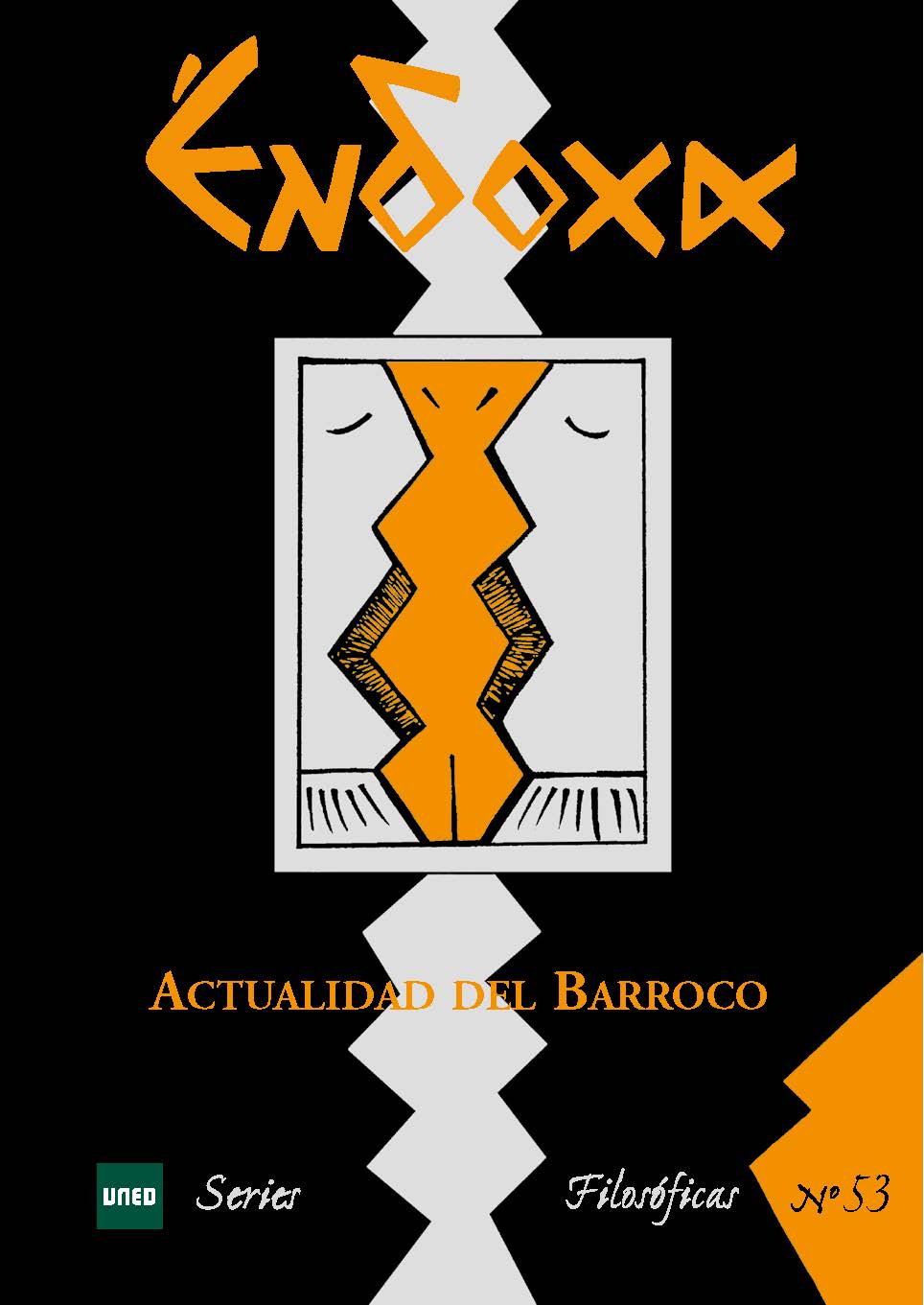Filthy world. The world's nihility and his salvation from Gracian and Nietzsche
DOI:
https://doi.org/10.5944/endoxa.53.2024.37741Keywords:
Gracián, Nietzsche, nature, culture, nihilismAbstract
In the traditional modernity the reality is understood from a mathesis universalis that explains it and show it with fixed and clear contours. All the science building is constructed on that conception, included the human world’s which will be understood from the same universals laws that regulate the nature. According to Nietzsche, for other hand, the world only finds a ground in the configurations of forces in becoming, which are not subject to any prior law. In the same way, many experts have support that Gracian hold a nihilist world’s vision from which the human world have not ground in itself but in out of it, on the run.
We will analyze the Gracián’s and Nietzsche’s reflections according to which the world appear from his «filth» and groundless. This reflections are against the modern point of view that submit the world under fixed and universals laws. However, we want to show how the Nietzsche’s and Gracian’s reflections does not drive to the nihilism, but to human’s responsibility for make some worth living in a world groundless.
Downloads
References
CEREZO, Pedro (2015). El héroe de luto, Zaragoza: Institución Fernando el Católico.
DE BRAVO, Cristián (2017). “De la experiencia griega de lo divino a partir de su distancia y proximidad”. Cauriensia Vol. 12, pp. 321-342.
GÁLVEZ, Javier (2022) “Corazón y mundo. Sobre las disposiciones éticas en la literature de Cervantes y Gracián en los albores de la modernidad”. Pensamiento, Vol. 78, pp. 1497-1518.
GRACIÁN, Baltasar (1993a). “El héroe” en Arroyo Stephens, Manuel (ed.) Baltasar Gracián, Obras completas II, Madrid: Turner.
— (1993b) “El Discreto” en Arroyo Stephens, Manuel (ed.) Baltasar Gracián, Obras completas II, Madrid: Turner.
— (2019) El Criticón, Madrid: Catedra.
— (2020) Oráculo manual y arte de prudencia, Madrid: Cátedra.
JIMÉNEZ, Beltrán (2022) “Gracián y la modernidad: la indisponibilidad del mundo y el papel constituyente de los otros como clave de la virtud”. Hipogrifo, Vol. 10.2, pp. 111-126.
NIETZSCHE, Friedrich (2017). “Humano, demasiado humano” en Nietzsche, F. (2017) Obras completas Vol. III Madrid: Tecnos.
SÁEZ, Luis (2009). El ser errático, Madrid: Tecnos.
— (2022) “El límite trágico entre lo inmundo y lo eterno”. Hipogrifo Vol. 10.2, pp. 191-206.
VÁZQUEZ, Francisco (2022) “El concepto de ‘ser persona’ en Baltasar Gracián como expresión de la perfección humana”. Pensamiento, Vol. 78, nº300, pp. 1479-1495.
Downloads
Published
How to Cite
Issue
Section
License

This work is licensed under a Creative Commons Attribution-NonCommercial-NoDerivatives 4.0 International License.
The authors who publish in this journal must agree to the following terms:
- The authors hold author’s rights and guarantee the journal the right to be the first to publish the work as well as the Creative Commons Attribution License which allows others to share the work as long as they acknowledge the authorship of the work and its initial publication in this journal.
- The authors can establish, on their own, additional agreements for the non-exclusive distribution of the version of the work published in the journal (for example, placing it in an institutional repository or publishing it in a book), always acknowledging the initial publication in this journal.
- The authors are allowed and encouraged to disseminate their work electronically (for example, in institutional repositories or on their own webpages) before and during the submission process, as this can give rise to productive exchanges, as well as earlier and increased citing of the works published (See The Effect of Open Access).








